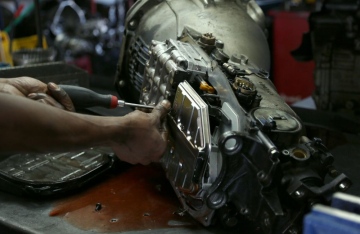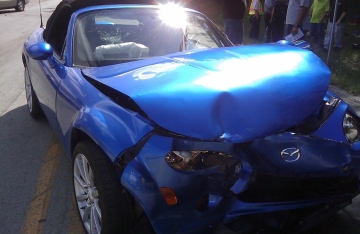You cannot watch TV, listen to the radio, or drive past a billboard without encountering a finance company’s advertisement promising to lend you money for your next car purchase–even if you’ve gone bankrupt. Yes, it seems that there is always someone out there, ready and willing to extend you credit. The question is “should you take it?” And, if so, when?
If you have filed for bankruptcy and are, now, considering purchasing a vehicle, there are a few things you should consider first.
What are your Alternatives?
The first thing to think about is whether or not you really need a car. If you can get by without taking on this big expense–the payments, insurance, maintenance, and fuel costs–you will be in much better financial shape. If you are currently operating an old clunker, you may want to stick with it until you can save up enough cash to buy a car outright. Or, you may wish to consider public transit.
What is the Status of your Bankruptcy?
Before heading to the car lots, you need to make sure that your bankruptcy has been discharged. In the case of a Chapter 7 bankruptcy, you will usually be in receipt of your Notice of Discharge approximately three months after your 341 meeting. According to “Bankruptcy Terms and Getting a Car After Filing,” a discharge is when the debtor is no longer responsible for paying back a debt, but what qualifies as a discharge varies according to the type of debt and bankruptcy. If you filed for Chapter 13, you will need to receive permission from the bankruptcy court before you purchase a car.
Either way, it is a good idea to check with your bankruptcy lawyer before going ahead with an automotive purchase.

How is your Cash Situation?
The more cash you have to put down, the better your chances will be to secure a car loan. Not only will it decrease the amount you are borrowing–and the subsequent amount of your monthly payments–but it also shows lenders that you have an invested interest in keeping those payments up-to-date.
And, surprisingly, after filing for bankruptcy, you may find yourself with a little extra cash in your pocket. As “Can I Buy a Car After Bankruptcy?” remarks, you might have freed up income because of discharged debts, plus your bankruptcy “may have stopped a judgement creditor from garnishing from your paychecks.” Remember, however, that if you had this money or were owed this money before filing for bankruptcy, it may have been listed as an asset. Be sure to check with your lawyer before using it to purchase a car.
Where can you get the Best Deal?
As you know, filing for bankruptcy makes you a high risk for creditors and, as a result, some lenders will not touch you at all. Others will be quite willing to lend you money, but it will come with an exorbitant interest rate–sometimes as much as 20 percent. That’s why you will need to shop around.
Don’t aim for an expensive car with loads of options. Instead, look for a reasonably priced, fuel-efficient model that is well within your budget. Overextending yourself will cause you to repeat past financial mistakes and get in over your head.
If increasing your cash down payment is not possible, you may wish to haggle over the price of the car. Arm yourself with a Kelley Blue Book, which can also be accessed online, and know what your desired car is worth. Also, opt for a loan that will not penalize you if you want to pay it out early.
And, once you’ve made between six and twelve monthly payments, look in to refinancing your loan. With your improved credit score, you may qualify for a lower interest rate.
So start paying attention to those television commercials, radio jingles, and billboard ads. You can buy a car–even after filing for bankruptcy. Vroom, vroom.
What advice do you have for someone who is buying a car after bankruptcy?




